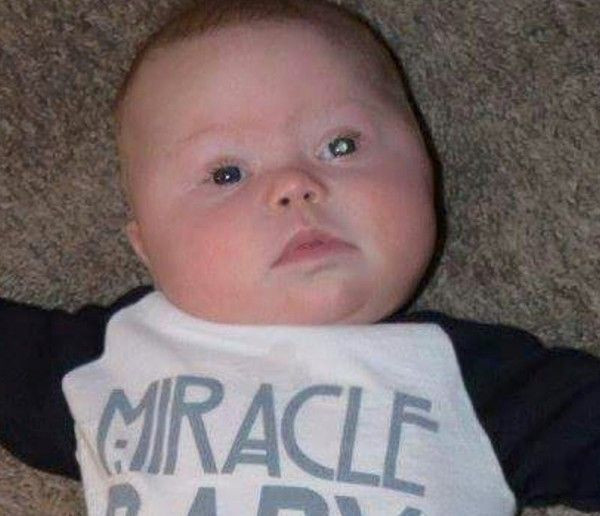Mom Uses Camera Flash To Detect Baby's Retinoblastoma, A Rare Eye Cancer

Like most new moms, Andrea Temarantz took endless photos of her four-month-old baby, Ryder. And thanks to the camera’s flash, those photos may have saved the young boy’s life.
Temarantz noticed Ryder’s left eye had a strange glow in many of the pictures, a condition that she read about in a Facebook post over two years ago. At the time, Temarantz “didn’t pay too much attention” to the post, says her sister Jane Dufoe on Ryder’s FundRazr page. But, “she said she remembered that this was a sign of something being wrong.”
Out of concern, Temarantz mentioned the photos to Ryder’s doctor at his four-month checkup. Within just one day, Ryder was diagnosed with retinoblastoma.
Retinoblastoma is a rare type of cancerous eye tumor that is most often found in children under the age of six. It is caused by the loss or mutation of a tumor suppressor gene. While 40 percent of cases are due to genetics, studies have also linked poor pregnancy behavior in U.S. Latinas to the increased risk of developing retinoblastoma.
Temarantz wasn’t the first mom to spot eye cancer in her baby’s photos; an Illinois mother did the same last May, and researchers from Baylor University and Harvard University have published studies that show digital photography can detect early signs of retinoblastoma.
But Ryder’s case is even more complicated than most. Back when Andrea was still pregnant, she was told that Ryder would have Down syndrome. “We were all prepared for all sorts of health issues to arise,” Dufoe says. But to the family’s surprise, Ryder did not develop a single health issue related to Down syndrome, and met every standard for the average, four-month-old baby boy – until now.
In most cases of retinoblastoma, parents are given the option to either remove the child’s eye, or to start chemotherapy. But Ryder isn’t a viable candidate for either option. Children with Down syndrome already have an increased chance of developing leukemia, making the benefits of chemotherapy extremely uncertain for Ryder. And because Ryder’s type of cancer is likely to spread to his other eye, removing one eye risks leaving Ryder completely blind in the future.
Ryder’s greatest hope is a unique chemotherapy delivery method that was developed specifically for Ryder’s exact type of tumor, and for which he was just approved. While he undergoes treatment, the Temarantz family asks that you please #PrayForRyder.



























